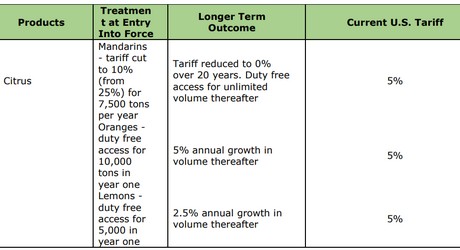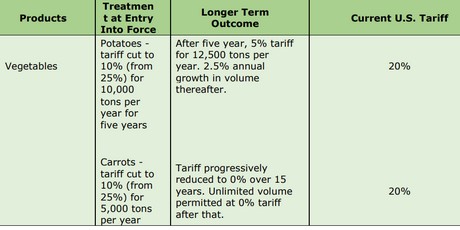Perhaps the most significant feature of the agreement is not related to a reduction in duties or quota allotments for various products, but rather that Indonesia will “guarantee automatic issue of import permits for key products.” It is unclear if this automatic issuance of import permits refers only the Ministry of Trade issued SPIs (Import Permit) or if it also extends to the Ministry of Agriculture RIPHs (Import Recommendation).
The agreement is still pending final translation, review, and approval by both countries. The table below shows initial outcomes for selected products and comparable tariffs or barriers for U.S. origin products.
Citrus: Seasonally, Australian mandarins and oranges do not compete with U.S. varieties. Lemons, which are a less seasonal citrus, may see a preference under the duty free quota, though the U.S. only exported about $1 million of lemons to Indonesia in 2017. The current five percent duty for U.S. citrus is only a minor barrier compared to numerous import licensing and non-tariff barriers that have been imposed by Indonesia and remain a point of contention for U.S. citrus market access.



Vegetables: The initial report does not differentiate between fresh potatoes for chipping (processing) and table stock potatoes. The initial reduction from 25 to 10 percent (if applied to chipping potatoes), would likely take market share from U.S. chipping potatoes still facing 20 percent duties.








